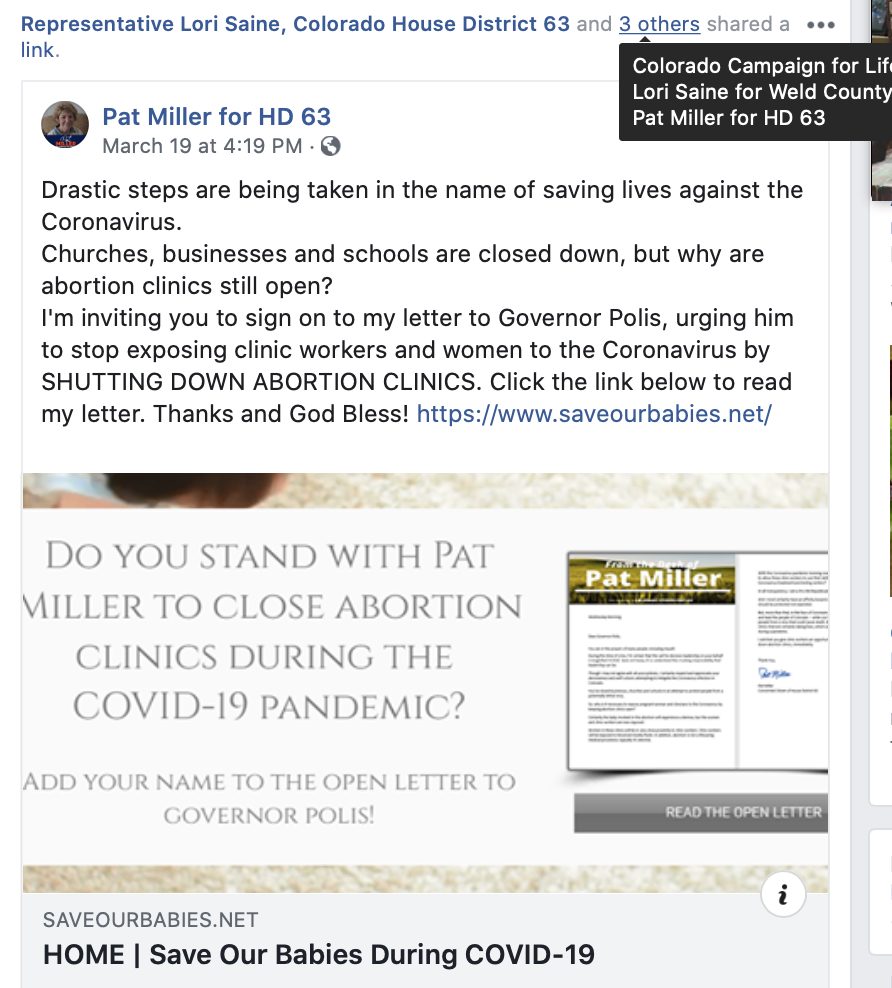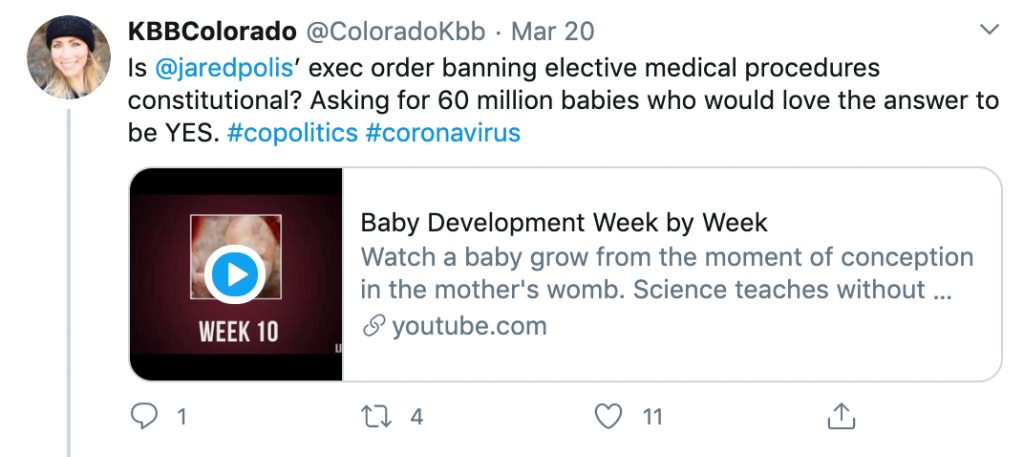As the coronavirus pandemic causes normal life to screech to a halt, conservatives across the country are pushing for a pause in abortion services as well.
Last week, Gov. Jared Polis, like many governors across the country, banned “non-essential” services like haircuts, massages, and tattoo appointments, in addition to “elective” surgeries, in an effort to minimize social contact and slow the spread of the coronavirus.
While the nation takes stock of what operations are necessary for society to continue to function, anti-abortion conservatives are seeing a window of opportunity for achieving their goal of shuttering abortion clinics, arguing that abortion should be considered a non-essential health service that need not be offered during the COVID-19 crisis.
In Colorado, some Republican political leaders are calling on Polis to shut down the state’s abortion clinics until the outbreak subsides.

“Churches, businesses and schools are closed down, but why are abortion clinics still open?” mused Pat Miller, a Republican candidate for Colorado’s House District 63 seat, in a Facebook post last week. Miller, who’s the former president of the anti-abortion group Colorado Citizens for Life, is circulating an open letter to Polis and asking those who support closing the state’s abortion clinics to sign on.
The letter, which was also shared by state Rep. Lori Saine (R-Firestone), asks, “Why is it necessary to expose pregnant woman [sic] and clinicians to the Coronavirus by keeping abortion clinics open?”
“Certainly the baby involved in the abortion will experience a demise, but the women and clinic workers are now exposed,” the letter continues. “While you’re closing down businesses to protect people from a virus that could cause death, it behooves you to shut down abortion clinics that are certainly taking lives, which are also exposing workers and patients.”
The ask comes as states with Republican governors like Ohio and Texas have already banned abortion procedures, grouping them in with health services deemed non-essential. Polis, a Democrat, has been vocal in his support for reproductive rights, and is highly unlikely to heed such a request.
Kristi Burton Brown, the vice-chair of the Colorado Republican Party, nudged Polis on Twitter to suggest that abortion be banned.
“Is @jaredpolis’ exec order banning elective medical procedures constitutional? Asking for 60 million babies who would love the answer to be YES,” she tweeted.

Pro-choice activists in Colorado are warning that stopping abortion services could have major consequences for patients, especially considering that abortion is time-sensitive.
“Access to abortion is an essential part of health care as well as a time-sensitive service,” ProgressNow Colorado Communications Director Fawn Bolak said in a statement to the Colorado Times Recorder. “A delay of even a few days or weeks can have drastic consequences for patients. It’s unconscionable that anyone, especially elected officials or those running for office, would use this pandemic to try to deny individuals their constitutional rights and advance an agenda of discrimination.”
Most states, including Ohio and Texas, have gestational limits on abortion procedures, usually around 22 weeks. Stopping abortion services during the coronavirus outbreak likely means pushing many of those who wish to terminate pregnancies past that legal timeframe, forcing them to either give birth or travel to a state where they can access abortion, despite the current health risk associated with doing so.
Asked whether she was concerned that closing abortion clinics during the COVID-19 crisis would cause more women to seek abortions later in pregnancy, Burton Brown told the Colorado Times Recorder that “When women are given a second chance to re-think an abortion decision, they choose life.”
Colorado, unlike Ohio and Texas, has no laws restricting when a person can obtain an abortion — something conservatives are hoping to change with a ballot initiative to ban abortion at 22 weeks in Colorado. The Secretary of State is currently in the process of reviewing petitions to determine whether the initiative will make the November ballot.




